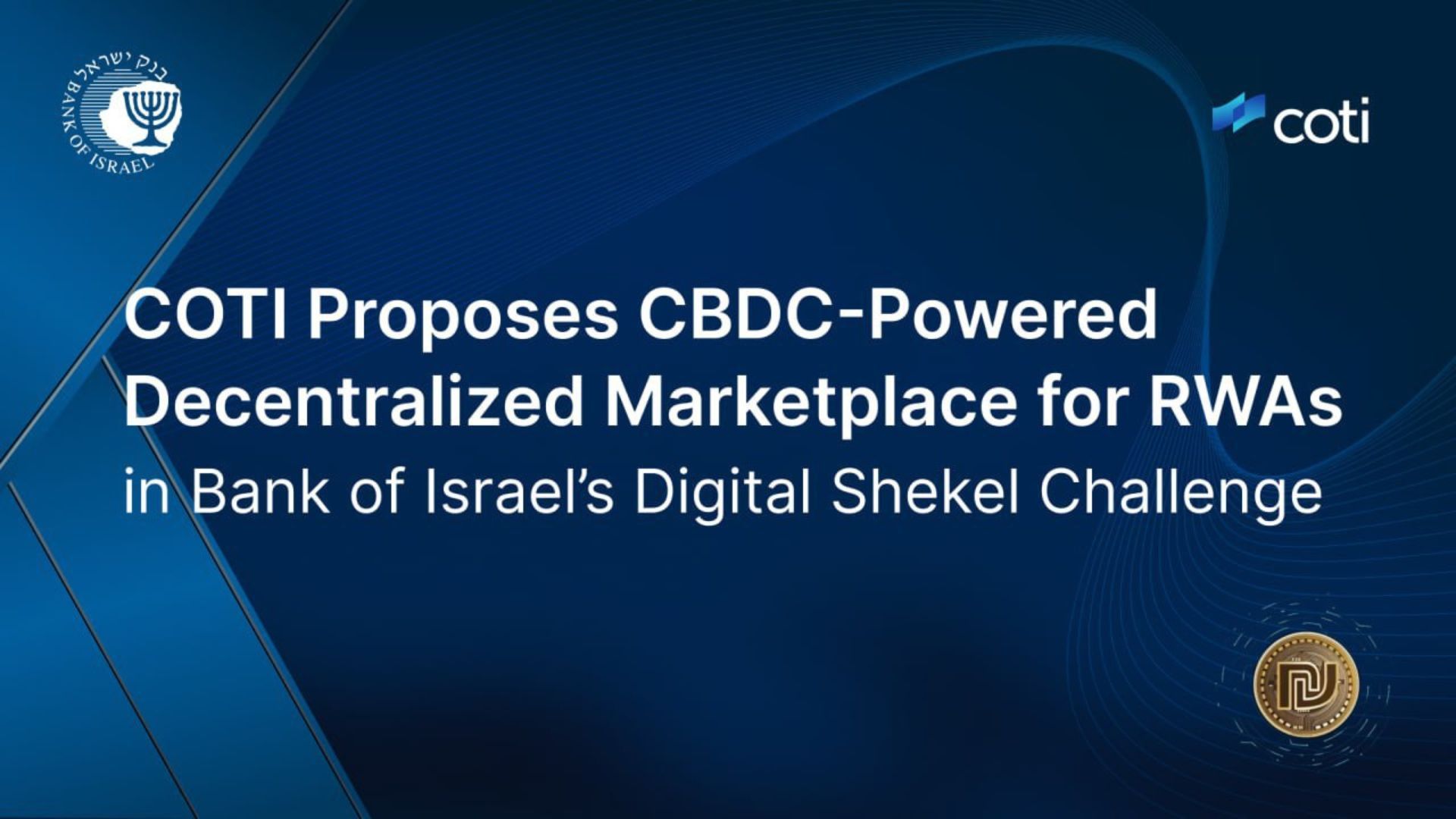
Privacy-focused blockchain COTI has presented its proposal for a decentralized marketplace for trading RWAs at a major event hosted by the Bank of Israel. The Digital Shekel Challenge was designed to explore use cases for CBDCs (Central Bank Digital Currencies), and COTI was the only blockchain invited to participate in the contest, which commenced in August and concluded October 31.
COTI Tackles CBDCs
A host of leading fintechs and payment firms including PayPal and Fireblocks entered teams to the Digital Shekel Challenge. COTI’s entry, a decentralized marketplace for event tickets, served as a proof of concept for the ability of a digital shekel – that is a CBDC – to operate as a mediating currency to swap between a local currency and that of a different country.
The demonstration presented by COTI, which can be viewed here, entailed using smart contracts to eliminate the need for intermediaries. Such a marketplace would reduce ticket fraud, but it would have much wider applications including the trading of real-world assets in which a CBDC could be used.
The challenge culminated at the Tel Aviv Stock Exchange on October 31, where COTI presented its decentralized marketplace alongside 13 other project teams. COTI’s participation in the Bank of Israel’s Digital Shekel Challenge underscores the potential for blockchain technology in CBDC applications.
The minutiae of the challenge tasked entrants with developing use cases that would address implementations such as connectivity between the digital shekel, other payment systems, and cash; use of advanced functionalities such as sub-wallets, conditional payments, and split payments; and the implementation of various technologies while using the digital shekel as a means of payment.
Project teams were required to utilize an API layer to provide a diverse set of functionalities for payment service providers.These are the sort of essentials that must be solved before any national bank can proceed with issuing a CBDC, and thus the work undertaken by the sandbox contest has real-world significance.
Bringing Private Transactions to Public Chains
COTI’s technology, particularly its garbled circuits protocol, aligns well with the privacy requirements of digital currency. Using this cryptographic approach, COTI provides a framework where a CBDC can achieve its goals without compromising individual privacy. This capability is vital for future CBDC designs, especially for governments that prioritize privacy in digital transactions.
COTI has been on the front lines of web3 innovation when it comes to creating blockchain-based applications with built-in privacy. Its technology makes use of a cryptographic protocol called Garbled Circuits that is particularly suited to use cases such as CBDCs.
While the world is rapidly moving towards widespread adoption of CBDCs – more than 40 are currently under development – natural privacy concerns have been raised. Technology that can allay these fears while providing a compliant framework is likely to see widespread adoption as central bank digital currencies move from concept into becoming a working reality.
Disclaimer: This article is provided for informational purposes only. It is not offered or intended to be used as legal, tax, investment, financial, or other advice.

